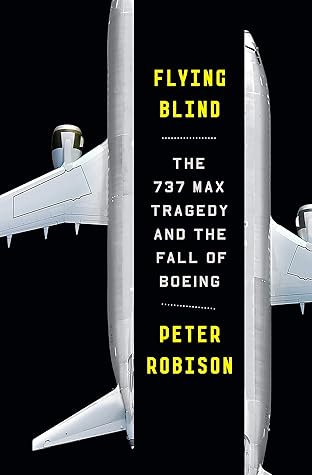More on this book
Community
Kindle Notes & Highlights
Read between
December 6 - December 13, 2021
There was another reason for the reluctance to push back against Boeing’s stated assumptions—one that involved race, not cost. The empathy that Boeing’s aviators might have had for a pilot who looked like them wasn’t being extended to Suneja and Harvino. Conversations at Boeing kept focusing on how Harvino, once he took over the controls, hadn’t been able to trim the plane with the thumb switch. Boeing’s pilots, predominantly older white men, had long had private jokes about the incompetent crews they ran into overseas. “Too dumb to spell 737,” went a frequent refrain of one pilot. Another
...more
It was Lent, so Nadia and Michael, who are Orthodox Christian, took comfort in the services taking place every day in the majority Orthodox country. Strangers came up to them and grabbed their hands and bent their heads and cried. A muscular guy in a tight T-shirt who sold them black stone crosses wept when he heard why they were buying them. That Sunday, mourners marched in the hundreds past the Library of Parliament in Addis Ababa to Selassie Cathedral, all in black or the sea-green uniforms of Ethiopian Airlines. Many carried photos of the dead, the scene gaining unearthly power from its
...more
Two brothers in California, Melvin and Bennett Riffel, had been on a last adventure together before Melvin’s wife, Brittney, was due to have their baby. A thousand people mourned them at the St. Joseph Catholic Church in Redding, California, many joining a spirited wake afterward at the Redding Elks Lodge. A few men came in Hawaiian shirts like those Melvin had worn, and one couple wore shirts printed with the brothers’ pictures. “Like I always told the boys—life isn’t always fair and sometimes it will knock you on your butt,” their father, Ike Riffel, told people at the Elks Lodge. “Let the
...more
Thirty years after the 1986 Challenger disaster, an engineer at Morton Thiokol, the firm that had designed the shuttle’s infamous O-rings, called one of his former managers. Bob Ebeling was eighty-nine now, and in hospice. Before the infamous launch, both had tried to alert NASA to the risks the Challenger faced, to no avail. Nearing death, Ebeling told the former manager, Allan McDonald, that he’d never stopped replaying the events of the tragedy in his head. He wished he’d made his case better. He asked why God had chosen a loser like him for such an important job. “I said, ‘Bob, a loser is
...more


